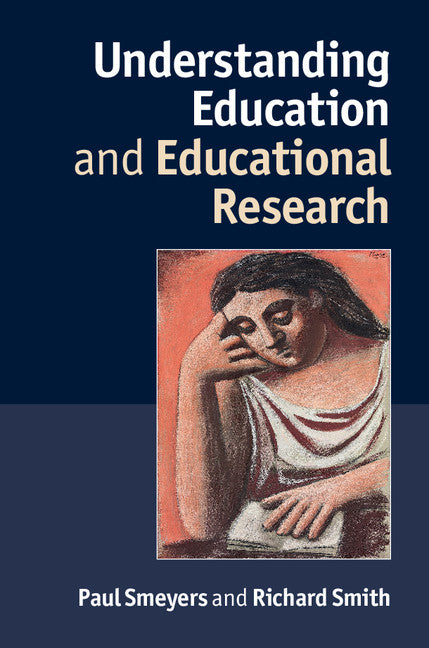Freshly Printed - allow 8 days lead
Couldn't load pickup availability
Understanding Education and Educational Research
Argues that good educational research is often in essence philosophical rather than a matter of conventional 'research methods'.
Paul Smeyers (Author), Richard Smith (Author)
9781107401617, Cambridge University Press
Paperback / softback, published 10 November 2014
227 pages, 4 b/w illus.
22.7 x 15 x 1.5 cm, 0.33 kg
'We seem to have entered a new dim age, a murky mix of scientism and managerialism in which accountability is reduced to accounting, judgment replaced by rubrics, and science parodied as a cultic religion of methods and statistics. In such an age, one needs guides such as Smeyers and Smith who, with their perfect blend of philosophical erudition and common sense, show how the craze for 'what works' distracts us from the crucial question of what matters in education, how the search for genuine understanding gets left behind in the contemporary parade of flimsy correlations, sloppy conceptualizations, and pseudo-generalizations.' Chris Higgins, University of Illinois, Urbana-Champaign
Educational research is widely believed to be essentially empirical, consisting mainly of collecting and analysing data, with randomised control trials as the 'gold standard'. This book argues that good educational research is often philosophical in nature. Offering a critical overview of the current state of educational research, the authors argue that there are two factors in particular that distort it. One is that throughout the world it is expected to serve the interests of the state in securing educational improvements, as measured by standardised examination results, and to demonstrate 'scientific' credentials sufficient to guarantee absence of ideological bias and carry conviction. The other is that learning to do educational research is generally seen as a matter of being trained in empirical 'research methods'. The authors demonstrate, by contrast, that good educational research needs the rigorous thinking characteristic of philosophy, and that philosophical treatments themselves sometimes constitute such research.
Introduction
1. Education and its research
2. The nature of social science
3. The idea of method
4. The nature of philosophy
5. The art of research
6. Language, truth, and meaning
7. On the dominant nature of educational research and its shortcomings
8. Research, policy and practical reasoning
9. The limits of measurement
10. Parenting and government intervention in the family (case study I)
11. Researching happiness and well-being (case study II)
12. Philosophy and research.
Subject Areas: Educational psychology [JNC], Psychology [JM], Social research & statistics [JHBC]


